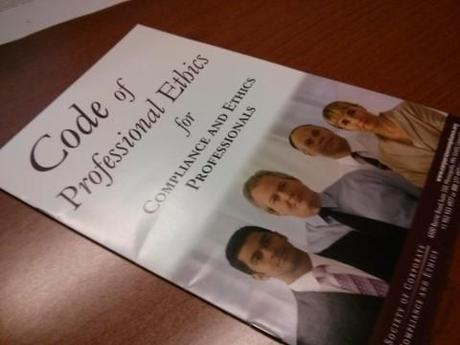
Anti-corruption compliance has become one of the key issues that companies around the world need to tackle, especially if their business involves extensive cross-border value chains.
The responsibility for designing and overseeing a compliance program, at least in larger companies, lies with an ethics and compliance officer or department. That’s not an easy job. Robust compliance requires sufficient resources; a communication strategy – both internal and external – to convey company values, policies, and procedures; a level of trust among employees to voice concerns and flag violations; and above all, a clear commitment from the board and top management.
Not surprisingly, in many companies at least some of the elements necessary for sound compliance need more attention and remain on a compliance officer’s wish list. In a recent blog, Michael Scher, who has over three decades of experience as a senior compliance officer and attorney and work for major companies in New York and the Middle East, shares several such items. Based on 2013 trends Scher complied 10 areas where more needs to be done, which can be summarized in the following categories:
- Compliance awareness. Many resources for business on anti-corruption and compliance standards do not focus on the role of compliance officers, and especially the challenges to their work in emerging markets.
- Compliance education. As of now there are no undergraduate or graduate degrees in compliance unlike in business law or accounting. Even where compliance is taught, it doesn’t receive the same level of attention as other business issues.
- Ethical business culture. Compliance at the very minimum is about following the law, but ethical culture is broader and should include rules against “lawful but awful” behavior in the C-suite. Compliance officers are the guardians of ethical business culture but their contributions inside companies remain largely invisible to the global public.
- Compliance infrastructure. It is best practice that chief compliance officers report directly to their board of directors, and that members of the board undergo mandatory compliance training. Yet these best practices are too often not followed.
- Protection of compliance officers. The U.S. Department of Justice and Securities and Exchange Commission guidance and enforcement do not specifically recognize abuse of compliance officers within a company as a misconduct. Also, compliance officers who prevent corporate scandals by warning management and boards sometimes suffer retaliation, which usually does not receive the same media attention as retaliation against whistleblowers.
But there is good news. The global focus on better anti-corruption compliance has been on the rise, with compliance departments growing and becoming more central to the overall business, even if best practices are yet to be more systematically implemented. What is more, compliance officers are not alone and can learn much from each other, as well as working together through organizations such as the Society of Corporate Compliance and Ethics - a member-based professional association that offers education opportunities and builds an increasingly international community of practice.
In the holiday spirit, Happy New Year to all ethics and compliance officers out there!

